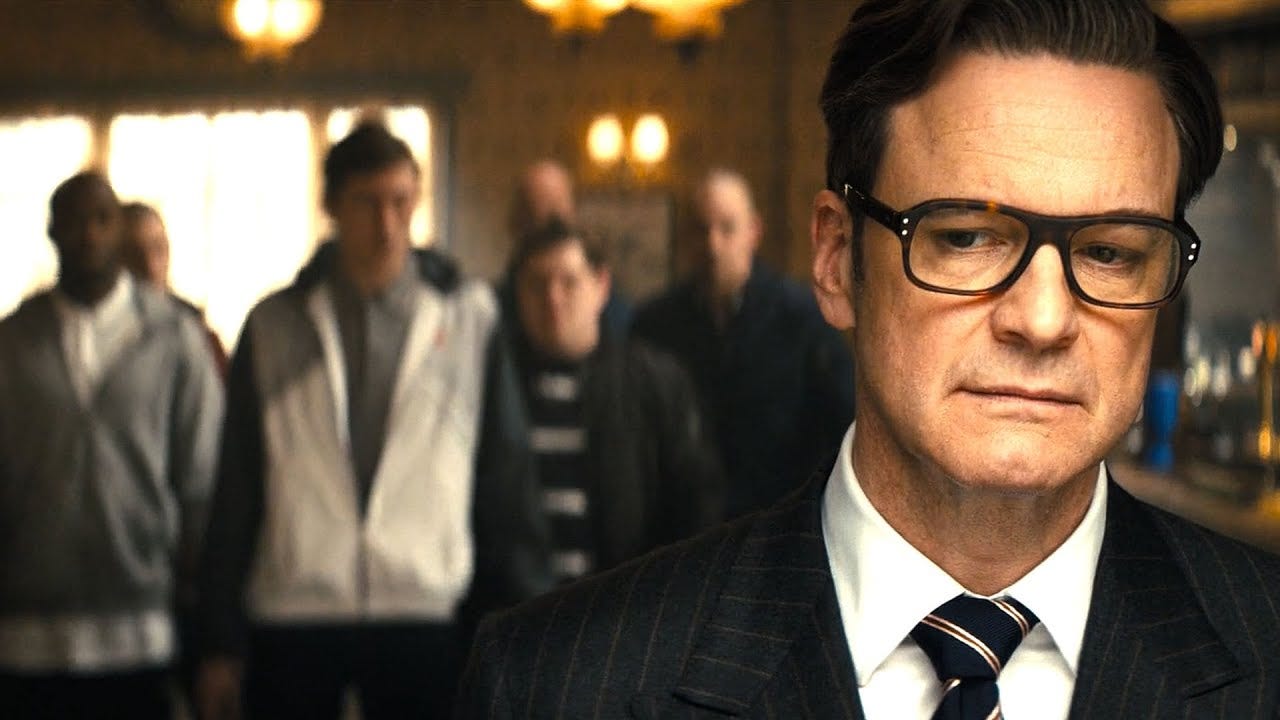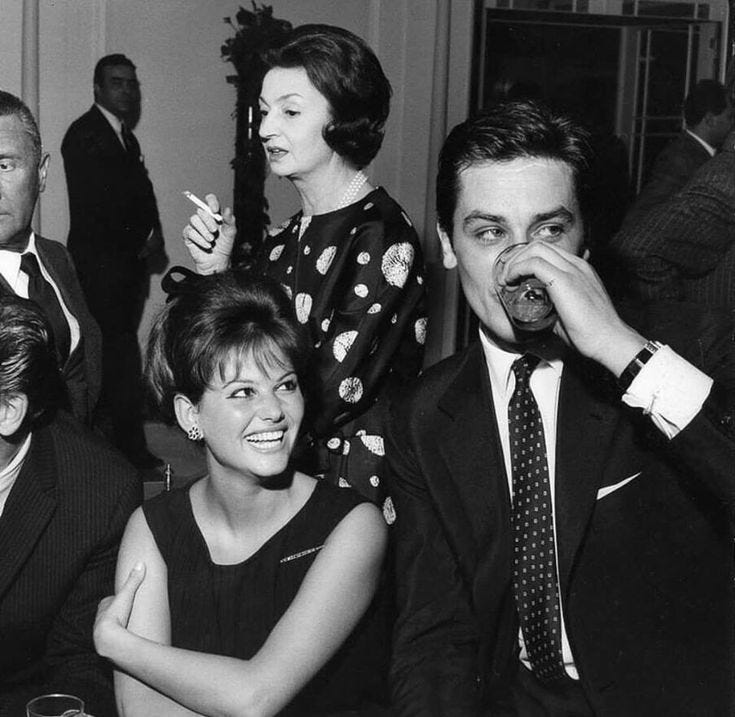How To 'Actually' Become a Gentleman
Overhaul Your Character and Your Life
The Reality of Modern Men’s Life
I probably don’t need to tell you how chaotic the modern day is.
From the fact that you are able to connect to the world all the time — through countless posts and feeds that you can infinitely scroll — to the overly casual first way of life that can be observed in most people — portrayed through carefree gestures, lack of polish, and most importantly, the absence of elegance.
As I have mentioned many times in the past, I have no right to judge a specific way of life that the masses tend to live in — but if you are the one who feels that there’s more to life than this…
That there’s something worthwhile in actually living and becoming a better man — especially something that resembles the classical image of the bygone era.
One that is far from the modern-day harsh, assertive, F-word-spiller in gym clothes; and contains class and restraint, yet is also different from the submissive softness that the modern agenda seems to be fond of encouraging men to adopt.
This is the calling of being a gentleman — an archetype that was once glorified in the early to mid-20th century, and I can say it’s coming back from the deep sea and beginning to surface in society again.
The reason why I, you, and perhaps hundreds or thousands of people watching this lean toward this archetype is that it opposes the current modern life that men tend to end up in:
Being submissive toward women who are attractive based on trends or preferences
Unable to live up to one’s personal calling in life and ending up in unfulfilling work for most of the day
Subconsciously bombarded by useless information on various social media — doing nothing but shortening attention spans and pumping dopamine through instant gratification
On the other hand, you’ve got the idea of the classic gentleman.
What do you think of when you hear this term?
A man who deliberately chooses how he lives his life — through his polished appearance, his high standards in grooming, his selection of culture he explores, his smooth charisma and etiquette in real-life interaction, and his inner strength in living a life that serves a personal purpose.
That is why the ‘gentleman’ is a countermeasure to modern life as a man.

The truth is, this is the experience that’s reserved for a discerning few.
Because the problem lies in the fact that our modern environment is no longer like the 20th century (this doesn’t even include the fact that today’s dynamic life favors speed and efficiency more than deliberate, slow-tempo movement like in the old days).
That said, not every man in the 21st century will resonate with or qualify to live in this lifestyle (and yes, it’s totally possible to do that at any stage or life situation in 2025 — you just need to know how).
Those you overlook will certainly have their own way (whether they have chosen it or not).
But for those like you who advocate classic virtue… when you set an anchor in living this path, there’s no way back to the old one.
So, whether you’re familiar with the concept of a gentleman or are someone who finds some intrigue within it but are still skeptical of its utility and practicality — allow me to guide you through this concept by concept, idea by idea.
By the end of this essay, you have my promise that you will be able to live daily sophistication in every day of your life — just like many great figures of the past always found a way to.
The True Crisis of 21st Century Men
“The unexamined life is not worth living.” — Socrates, at his trial (as recorded in Plato’s Apology)
The big problem of the 21st century is that humans are too exposed to undesirable information.
What I meant by this is that we are automatically bombarded by news, agendas, fabricated lives of others, and content that exists merely to entertain—with no substance.
Basically, 24-hour access to a whole world within a square device and our fingers.
Now, what does this have to do with the gentleman lifestyle, you might ask?
One thing we can all agree on is that life in the early to mid-20th century was obviously simpler—or at least more slow-paced—than the modern one.
At best, they had television, car radios, and newspapers… just that.
“The stories that dominate people’s lives are no longer told by parents, schools, churches, or others in the community who have something to tell, but by a group of distant conglomerates that have something to sell.” — George Gerbner, creator of ‘Cultivation Theory’
That said, media was—and still is—the most powerful weapon to dictate mass society.
The reality of media these days is that it’s fast, it’s optimized for the longest usage within platforms, it’s available 24/7—and the bad news is that it has succeeded so far.
Based on data from sources like Exploding Topics, Backlinko, and Pew Research, it shows that global smartphone users now spend an average of over 4.5 hours daily on their devices, with 2 hours and 21 minutes dedicated specifically to social media.
If we combine the theory and the data of gradual consumption altogether—it turns into a set of ideas that modern men have heavily developed their worldview and live their lives based on the masses’ agenda, the shallowness of Instagram, and the purposeless content on the internet…
All of which leads them to a lack of self-awareness.
With hyper-consumption, it doesn’t allow one to sit still, talk to oneself, observe one’s mind, and be able to truly know oneself.
And without knowing oneself—well, you probably guessed—it leads to a purposeless life without a doubt (or at least a life that isn’t truly chosen from one’s inner calling).
This is why there’s a bizarre phenomenon of modern men who consume mass culture around self-improvement—existing only within these terminologies you’re probably familiar with: being high value, earning $10,000 per month, bodybuilding.
By all means, nothing is wrong with those.
Nothing is wrong with having big money, big muscles—since those can contribute to many benefits in life…
But the problem is the lack of character… the absence of culture, of depth, of substance in one’s life that goes beyond copywriting, sales, or how many plates one can bench press.
And this is where the gentleman archetype comes in to fill the hole.
Common Myth of ‘Gentleman’ (and Its Lifestyle)
Before we go any further, let me tell you a story.
Recently, there has been an objection to the idea of becoming and living like a gentleman in the 21st century.
Something along the lines of:
“What do you expect from the 20th century?”
“What’s so good about romanticizing patriarchy, global warfare, and a restricted way of life?”
The first question I had in my mind when I first encountered these arguments on the internet was:
Why can’t you just select only the virtues from bygone eras—without dragging back the chaos that should stay as relics?
To assume that:
If something comes from a morally flawed era, then all products of that era are invalid.
Or you cannot extract the useful or the beautiful without endorsing the ugly.
These assumptions simply do not make sense by their own nature.
To claim that: if you aspire to the elegance of Cary Grant (or the 20th-century gentleman archetype as a whole), then you must also be endorsing misogyny or global war tensions—
Is like saying: if you read Meditations by Marcus Aurelius, then you agree with slavery.
(Which, obviously, is not the case—I assume.)
Though at first I couldn’t understand the mindset of people who use this idea to oppose the virtue of being a gentleman—I then came up with a solution to this.
I name it — The Constructive Deconstruction Framework — arguably the single skill you can learn to be smarter than most people these days.
This is the ability that allows you to see through the context, dissect the components of it, and select only the desirable virtues that lead to constructive results in life.
In our matter, it’s the idea of the gentleman—especially the one that has been portrayed in the early to mid-20th century.
Now, this idea will only require you to ask four questions about a specific idea of interest:
1. What is the core structure beneath this?
2. What is essential vs. what is contextual?
3. What is virtue, and what is just veneer?
4. What can I salvage, reformat, and rebuild?
For example, let’s look at the epitome of gentlemanliness — Cary Grant.
What is the core structure beneath him?
It’s the idea of self-invention, pursuit of excellence, elegant attire, irresistible charisma, and integrity.
What is essential vs. what is contextual?
Clearly, all the aspirational traits like social skills, sartorial elegance, mastery pursuit, debonair demeanor, chivalry, and ease within one’s own skin.
The fact that he lived in the 20th century with restricted gender roles or global tensions — that’s the context, not the essence of the man himself.
What is virtue, and what is just veneer?
The characteristics of elegance, demeanor, effortlessness, and charm — those are clearly role models for modern men.
His early-day insecurity? His family issues? His divorce problems? We don’t need to “take those” into us.
What can you salvage, reformat, and rebuild?
The modern-day application of Cary Grant’s traits in the 21st century.
From his sartorial attire, his social charisma, his effortless charm — these can all be a blueprint for the aspiring modern gentleman.
This is how Constructive Deconstruction works — and I hope it puts an end to the argument of
“What do you expect to gain from living like 20th-century men?” once and for all.
And now, since we’ve clarified the causes of modern men’s struggles and the barriers to fully embracing the gentleman lifestyle — it’s time to dig deep into this one…
What kind of life is it really — to be a gentleman?
The Lost Art of Living That Must Be Revived
The meaning of gentleman, while on a surface level may seem purely about how a man dresses…
Whenever I see modern sartorial brands use the term ‘gentleman’ in any of their sales copy, garment descriptions, or social media posts — it just amuses me.
Because my firm belief is that:
A mere full-canvassed suit made of Holland & Sherry fabric, a dress shirt made of Thomas Mason, a 7-fold necktie from Italian silk, and dress shoes from John Lobb…
While they are certainly high-quality craftsmanship and obviously a choice of a man of taste — these don’t reflect that the man who wears them is a gentleman.
“A Gentleman is a man who pursues excellence through internal character and external appearance.” — Patrick Gunn
That said, dressing in classic style is just a fraction of being a gentleman — a noble pursuit that goes far beyond looking elegant, but requires one to act and live in such a way as well.
We’ve seen this clearly in the portrayal of pop culture figures — you can name them: Ian Fleming’s James Bond 007, various Cary Grant characters in Hitchcock films, Atticus Finch in To Kill a Mockingbird.
Apart from the polished external appearance through iconic sartorial garments, they also contain substance behind that image:
A character that reflects strength with composure
A charisma that can navigate countless high-stakes social situations
A lifestyle — a day in a life — that builds their character as a gentleman
Which is what allows them to experience a kind of life that modern men seem to have forgotten — a daily sophistication that combines purpose and elegance altogether.
The problem with the 2020s on a global scale is that humans tend to obsess with the idea of looking productive too much (and I emphasize — looking, not actually being such).
I don’t know if this happens in your city or not (which I guess it does, if you’re in a big metropolis like New York, Chicago, London, Tokyo — and in my case, Bangkok).
In the past few months, I signed a contract to access the most luxurious co-working space in this city, and as you can guess — most of the people there are modern knowledge workers dressed in white-collar attire.
And from my observation, there are plenty of them just scrolling their screens for nothing until 6–7 p.m., just for the sake of being there and looking like they’re working.
(If you want to know why on earth I spent that time just watching people live their lives, check out this essay — I’m sure it will give you a full answer.)
Anyway, apart from the real-life phenomenon that happens among the masses, in the digital space we see tons of ideas preached by tech or finance business tycoons, suggesting that your life means nothing if you’re not spending time getting work done, earning big cash, and gaining a higher status than other human beings.
Gentlemen, I’m not here to say whether those are right or wrong ways to live — but allow me to give you a glimpse of what could possibly happen when you embrace the lifestyle of a gentleman in the 21st century.
First, it allows you to break free from the invisible chain that binds you to the norms of modernity.
The idea of connecting, working, and consuming all the time.
A life that exists for hedonism… or an undesirable career path (that merely pays the bills).
A state of mind filled with fear and uncertainty from political conflict news, A.I. hype, and mass agendas.
Life as a gentleman is contradictory to — and the opposite of — these ideologies.
It allows you to know yourself more, to have a chance to talk to yourself and actually know what you want in life and what kind of man you want to become.
And speaking of gaining self-awareness and starting to live like a gentleman — I offer a complete blueprint in the Narrative Shifter.
The next thing you can expect from this lifestyle is that you will develop a character full of intellectual aspects and cultural knowledge.
This applies to numerous traits of a gentleman:
From the way he dresses — the classic style that requires sartorial knowledge and historical understanding in order to master the attire (which I also provide a free full guide video on),
To the idea of finding one’s own interests and being able to dig deep beyond the surface — such as a specific sport, a genre of music, or a certain type of art.
All of these require a gentleman to go deep into those realms — and eventually, he will develop an actual character that makes his life rich in depth and meaningful to live for… beyond making six figures a year or acquiring muscle mass.
To be concluded in precise terms — the life of a gentleman will allow you to become the protagonist of your own directed story — and not just any story, but one with class.
Think of Bond, for example — the reason why this character has remained relevant for six decades is no coincidence.
People tend to look only at how he dresses or how he flirts with women — but the allure, the myth of 007, lies in the fact that he is one of the most complete men ever portrayed.
He is composed and still pursues excellence through his internal character — reflected in his purposeful commitment to his mission, whatever it takes, his manner and social intelligence, his expertise in various fields — and his external appearance, which is obviously sartorial excellence.
That is the possibility available to you as well.
It is how you can both develop yourself to your highest potential in every angle all at once — while also enjoying your daily existence with class and sophistication.
So now, let me give you the exact step-by-step that will allow you to step in and breathe as a man who settles for nothing short of excellence — the lifestyle of a gentleman applied to the context of 2025.
First and foremost, you need to know who you currently are and what kind of man you want to become.
After all, the idea of a gentleman in the modern world is no longer limited to a certain bloodline or restricted archetype.
This means it’s all yours to design and craft the persona — which will then lead to a lifestyle as a whole.
Self-awareness is the first step for you to enter this path, since it’s the crucial component that modern men seem to have forgotten, and that has caused them a miserable life. (As we’ve already covered the causes and effects of this earlier.)
So… you might wonder
“Alright, Patrick, I’ve heard you mention this ‘self-awareness,’ this ‘knowing yourself’ for a while — but how can I actually achieve that?”
And here’s my answer — you need to find out what kind of life you’re disgusted to end up in.
The beauty of being human is that we’re so allergic to discomfort — to the physical or mental state that is so undesirable to be in.
To know yourself, and the direction of development from now on, the easiest way to begin is to list out everything you don’t want.
For me, it’s:
Work that doesn’t resonate with my inner calling
An unpolished appearance that leads to sloppiness in standards
A lack of depth and substance in life
Invisible and uncontrollable social dynamics
The “just another man in the room” phenomenon
Neediness and insecurity within my own skin
So… the practical idea here is: after you finish this video, find a quiet space, spare yourself 30 minutes, and listen to your mind with a single prompt in your head:
“What do I disgust to end up in life?”
Only through this can you begin to understand what kind of life you’re going to build.
Because the next step is to reverse the undesirable into the desirable — and then combine those with these ideologies: the essential aspects of a gentleman that include Style, Culture, and Mastery.
Three noble traits that gentlemen of the bygone era always strived for, but which seem to have gotten lost in the modern landscape.
Let me explain this.
Style is the way in which you do something.
It has often been perceived solely as the way of dressing, but it actually goes far beyond that.
A gentleman always knows his style — and gradually develops it, refines it over time.
For instance, you need to know your dressing style:
Is it traditional sartorial?
Is it modern tailoring with casual flair?
Is it expressive, bold, rakish like Continental figures from the 1960s–70s?
For dressing style, there is an array of choices to develop and tailor to your taste — but in the end, they must come from within you and still contain elegance — the art of simple beauty that allures rather than shouts.
When you integrate this aspect into your gentleman character, you will have a uniquely distinct way to remind yourself of who you are — and a presence that naturally allures and elevates the atmosphere wherever you go.
The next aspect of the gentleman lifestyle is cultural intelligence.
This is what modern society has devalued and overlooked — perceiving it as a waste of time.
But as T. S. Eliot once said:
“Culture may even be described simply as that which makes life worth living.”
It’s clear that this concept is what makes human life human.
It’s how we understand the richness of life — its romance, passion, and emotion — which builds a depth and substance within a gentleman, expanding his perspective.
And… if you wonder what the tangible idea of culture is — actually, it’s anything that was created by humans and adopted by others.
Types of music, genres of film, movements in art, particular sports, traditions and heritage of specific acts, local languages, and plenty more…
Now, the core idea of the cultural aspect for a gentleman is his taste in selection, and his development in understanding and appreciating these things.
Though there are similarities in culture that you and I are likely to share — such as classic cinema, jazz, cocktails — they are still personal choices to pursue.
Of course, there are reasons why modern aspiring gentlemen are into Sean Connery’s James Bond 007, Louis Armstrong’s musical pieces, or classic cocktails such as the Negroni or Martini — because those reflect virtues that resonate with our desires.
Ones that require depth to appreciate.
But… I do not believe there’s a specific limit to cultural appreciation for a gentleman these days… as long as those cultures reflect timeless, classic ideals.
(Which are rarely found in modern culture like hip-hop, R&B, or TikTok dance trends.)
So to conclude this point — the cultural aspect for a gentleman is essential for building his unique character, curiosity, and depth in taste
Whatever culture he embraces, he will always seek to understand the substance of it, learning how to truly appreciate it beyond the surface level.

And… the last trait that must be integrated into a gentleman’s lifestyle is the pursuit of mastery.
When you look back at the history of mankind, those who marked their names in the grand record of achieving something great — there is a singular trait that held strong within them:
The strive to master their craft, to reach the apex of a specific expertise.
William Shakespeare, Ralph Waldo Emerson, Fred Astaire… these gentlemen across centuries always sought to master their craft — and I would argue that this is what leads to a fulfilling life.
“The best moments in our lives are not the passive, receptive, relaxing times… but those where we stretch ourselves to the limit to accomplish something difficult and worthwhile.” — Mihaly Csikszentmihalyi
This is why, before I shared these three aspects of the gentleman with you, I recommended that you know yourself first.
To know what you don’t want, and then reverse that in the opposite direction to understand where you need to go.
When you’ve got a destination in life, you’ll gradually see the pathway to it, brick by brick — and that becomes a lifelong journey of laying each brick through the pursuit of mastery to achieve that destination.
Let’s look at my life as an example — for me, I know clearly that my purpose in life is to bring back elegance into modernity.
And in order to do that, there are plenty of areas of mastery I must pursue.
From writing to storytelling to social charisma to mental articulation — these are essential areas of expertise I must devote my life to refining day and night, to make them more efficient, more impactful, and ultimately capable of fulfilling my purpose.
Now that you, gentlemen, see these three traits of the modern gentleman — style, culture, and mastery — it’s time to integrate them into your life through action on a daily basis.
This is a similar process to creating a daily routine that you’ve probably seen on YouTube or blogs — but the difference here is that you will approach it in a holistic way that combines both efficiency and sophistication.
If you’ve already figured out your gentleman character — then the next step is to outline that into a practical day in the life.
You can start with this question:
“In 24 hours, what would he do from the first moment he wakes up till the night? One that still contains style, culture, and the pursuit of mastery?”
That will lead to a gentleman’s ritual in a way like this:
You wake up deliberately — not to the alarm or calling from some superior being, nor from the need to grind like the modern-day 4 a.m. sleep-deprived club.
You start at your own pace, perhaps with a cotton or silk robe, an espresso in a porcelain cup, with the hum of music you admire.
You then groom yourself, dress elegantly in your daily style, and begin the work with intention — this combines purpose and mastery refined altogether.
After those intense hours, you find time for immersion in culture — through reading, listening, or watching.
And perhaps, at the end of the day, you find yourself in great company or in quiet introspection with your own thoughts.
All of which leads to the complete day in the life of a gentleman who embodies it all.
The beauty of this is that you don’t need to wait until you hit a financial milestone or acquire specific material possessions — it’s a deliberate choice that awaits you to claim.
And it all starts with knowing which kind of life you don’t want, crafting your style, diving into culture, and pursuing mastery — then injecting all of those into your daily life…
Which I guarantee will make your experience as a man in modern society feel like a scene from cinema every single day.
All without permission from others, all without conforming to an overly casual norm — and that’s probably the best thing you could do in this current moment.
That’s all for this one.
If you find this idea intriguing and are eager to start experiencing it right now, then The Narrative Shifter will do you a favor.
With that said, thank you for your time, and as ever — I wish you a great day and hope to see you in the next one.










